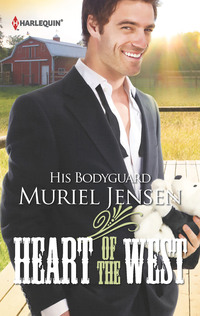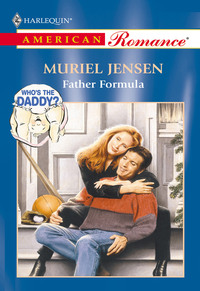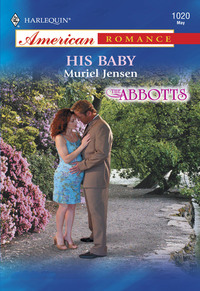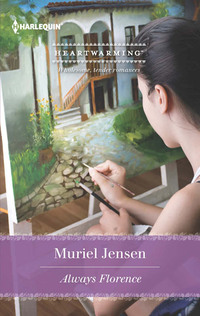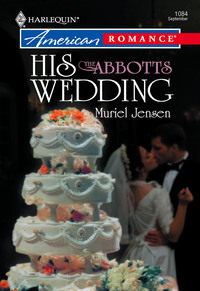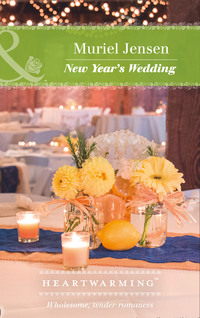
Полная версия
Milky Way
“How are you going to provide for those children’s education, Mrs. Hansen?” he asked. “You’re in considerable debt already, with little chance of fighting your way out without selling—or marrying a wealthy man. Would you rather the bank got your memories?”
She paled, holding both arms rigidly to her sides. “How dare you worm your way into my kitchen—”
“You invited me in,” he reminded her quietly, “after I prevented you from breaking your neck.”
“—drink my coffee,” she shouted over him, “then proceed to call me a deadbeat?”
This wasn’t going at all the way he’d hoped. “I said no such thing,” he denied, pushing the chair he’d occupied back to the table. “I mentioned only what is public record. If you sell, you can pay all your debts, buy a nice little place somewhere and still have enough left over to start four college funds.”
She did not appear appeased. “You even know how many children I have.”
“Details are an important part of my job,” he said without apology. “You owe us a lot of money, Mrs. Hansen. One of us better do his research.”
She marched across the kitchen, her braid flapping against her upper back. She yanked the door open and fixed him with a lethal stare, her cheeks pink, her voice wavering a bit as she said darkly, “I’m a 34B, I love silk underthings and mocha fudge-nut ice cream, and I root for the Milwaukee Brewers. Anything else you’d like to know?”
Jake tried to accept defeat gracefully. But his life and career were on a timetable, and her inability to pay her debts, plus her refusal to sell, were holding things up. The Winnebago Dairy board would be making the vice-presidency decision at the end of summer. He’d hoped to be district quota buster by then, or to have reeled in her property for the company so that he’d be the only possible choice.
On such short acquaintance he’d decided he liked her, even though she was making his life difficult. He’d try again. There had to be a way to reach her. But he had to regroup first.
He smiled politely and went to the door, resolutely keeping his eyes from the charming dimension she’d announced. “We’ll deliver,” he said, “as soon as your bill is paid.”
He stepped out onto the porch, but was swept back into the kitchen when a wave of children collided with him, then carried him along as they burst into the house. He heard the four of them yell, “Hi, Mom.” Four lunch boxes clattered onto the table, then the wave dispersed in four directions—the refrigerator, the cookie jar, under the table where the dog lay and to the small television in the opposite corner. A bouncy cartoon ditty filled the room. The kittens raced back in, seeking attention.
A slender boy about twelve or thirteen polished an apple and studied Jake from a careful distance. He wore jeans and a plaid flannel shirt open over a T-shirt. “Your wheels in the driveway?” he asked.
“Yes,” Jake replied.
The boy nodded. “Cool.” Then he looked from his mother’s frowning face to Jake’s unfarmlike attire and asked with an edge of hostility in his voice, “You from the bank?”
Britt put her arm around her older son’s shoulders and forced herself to smile. She tried so hard not to let her financial woes affect her children, but money, or the lack of it, had become so large a part of her life lately that the subject intruded everywhere. Determined to keep it from gaining more ground as long as she could, she said cheerfully, “Matt, this is Mr. Marshack. We were just talking about...about Great-Grandma Bauer.”
Jake saw the transformation take place on the widow Hansen’s face as, snacks secured and the dog and kittens petted, the children gathered around her. He guessed it was maternal reflex at first; she didn’t want them to know she was upset. Then the youngest boy and girl flanked her, each leaning in to her, and she seemed to visibly relax.
“This is Christy,” she said, putting a gentle hand atop a preadolescent with hair the same shade as hers. The child wore glasses with red frames and had eyes that studied him with the same suspicion her mother’s showed.
“David,” she went on, moving her hand to a boy about eight. He was the only one in the group with dark hair, and his blue eyes verged on green.
“And Renee.”
“I’m six,” the plump little girl reported. She was the spitting image of her mother and sister, but with the rounder features of early childhood. She smiled up at him. “You look like Robin Hood,” she said.
Britt’s eyes met his and said without words, But you’re more like the Sheriff of Nottingham. Aloud, she said, “Mr. Marshack was just leaving.”
“Stay cool,” Matt advised.
“Nice to meet you,” Christy said.
David waved at him from his mother’s side, and Renee followed him out to his truck.
“I’m in first grade,” she said, hopping on one foot beside him, then racing to catch up as he got ahead of her. “My birthday is in October. You know, January, February, March, April...”
She went all the way through to October while following him around the truck and watching him open the door and climb in.
He let her go on without comment because he never knew what to say to children. He always got the impression that, despite the less-sophisticated vocabulary and the smaller stature, they were smarter than adults. And this one fairly glowed with curiosity and intelligence.
As he consulted his calendar to check his next call, she pointed to the portable office that sat on the passenger seat. “What’s that?” she asked.
“Files,” he replied.
“What’s that?”
“Papers and stuff.”
“Oh.” Satisfied, she stood on tiptoe to study the dash.
“Renee, honey,” the widow said, appearing from around the hood and taking the child by the hand, “Mr. Marshack has to leave.”
She stepped away from the truck, pulling the little girl with her. “Goodbye, Mr. Marshack,” she said, her eyes hostile again. “Next time you wish to speak to me, please write or phone.”
Jake put the truck in reverse, checked that his rearview mirror was clear, then stepped on the gas, determined that the widow Hansen hadn’t seen the last of him.
The sound of metal crunching and glass popping under his rear tires made him slam on the brake.
CHAPTER TWO
“MY BIKE!” Matt stared down at the pile of contorted metal that had been his beloved twelve-speed, his dark blue eyes reflecting his horror. The other three children also stared, open-mouthed.
“Maybe Mom can fix it,” Renee suggested.
“I think it’s dead,” David said.
“You were supposed to put it on the porch,” Christy pointed out. “Mom told you—”
Matt rounded on her. “You shut up!” he ordered, then turned back to the “body” with a gasp of distress.
Jake, riddled with guilt, put an arm around his shoulders. “I’m sorry,” he said. “I’ll buy you another one.”
“No.” Britt’s voice was firm, though her expression was sympathetic. “He always leans it up against the most convenient prop, then forgets it. I’ve barely missed running over it countless times. He’s supposed to lock it up on the porch. He knows that. It wasn’t your fault.”
Jake had expected her to be grateful to have something to blame on him. He was surprised into feeling responsible.
“Look,” he began, “I’ll be happy to—”
“No,” she insisted, pulling Matt out from under Jake’s arm and putting her own around the boy. “We all have to pay the consequences of our actions. That’s one of life’s primary rules.”
“What about my paper route?” Matt asked plaintively.
“You’ll have to use my bike,” Britt replied.
He rolled his eyes in distress. “Mom, come on. Your bike is dorky! I can’t—”
“What are your alternatives?” she asked.
Jake could see the boy struggling manfully not to cry as he continued to stare at the twisted tubing. “I could ask Howie to take over my route.”
“Then he’ll get the money and not you. How are you going to pay your way on the Scouting trip?”
Jake bit his tongue. He’d never been a parent, but he considered her unreasonably stern. It didn’t seem fair to remind the boy of other things he couldn’t have while he was standing over the corpse of his bike.
“Could I speak to you for a moment?” he asked the widow.
She gave him a cool, reluctant glance, then shooed the children toward the house. “Matt, put the bike in the back of the station wagon,” she said. “I’ll see if Brick can do anything with it.”
As the children moved away, Jake took her elbow and pulled her down the drive, out of earshot of Matt, who was bending over the bike.
“No,” she said quietly before Jake could say anything.
“Look,” he countered reasonably, “I backed over the bike because I didn’t see it. I feel—”
“You didn’t see it because he parked it in the wrong place after repeated warnings.”
He folded his arms and frowned down at her. “You chew nails, too?” he asked.
She glowered at him for one long moment, then sighed and squared her shoulders. “Do you have children?” she asked.
“No, I don’t,” he admitted, “but if I did, I wouldn’t rub their noses in their mistakes.”
She shook her head at his naïveté. “How do you suppose they learn not to make them?”
He opened his mouth to answer, but she cut him off. “By having to live with the results. Perhaps you can afford to be more understanding because if your child made such a mistake, you could simply buy him another bike. Matt’s reality is that I can’t afford to do that, so he has to take special care of the one he has.”
“I feel partly responsible.” Jake thrust a thumb at his chest. “And I can afford to buy him another one. Doesn’t that change the equation just a little?”
“No,” she said, “because you won’t be around to buy him yet another one when he forgets and leaves the new one in the wrong place because the message never really got through.”
Jake turned his head to watch the boy heave the wreck into the back of the car. “Do you really think he’d let that happen again?”
“Twice or three times more,” she said without hesitation. “Kids are thick, Mr. Marshack. Now, if you’ll excuse me.” She glanced at her watch. “Christy has a piano lesson, David has a t’ai chi class, Renee has ballet and Matt has to deliver his route.” She started to walk up the drive but he caught her arm.
He was surprised by how small it felt in his grip. Her bicep was muscled and firm, but he could easily close his hand around it. She looked up into his eyes and he felt that shock again, as though water had closed over his head.
Then, unexpectedly, her eyes gentled and she gave him a half smile. “I know you mean well,” she said, “and I appreciate the generosity of your offer when you know it really wasn’t your fault. But it’s important that Matt live with this for a little while.” Then her smile took on a slightly wry twist. “Just as I have to live with the results of my inability to pay my bills. Life is hard, and that’s a truth no one escapes. Goodbye, Mr. Marshack.”
She caught up with Matt and put an arm around his shoulders.
Jake saw the boy stiffen stubbornly, refusing to respond to some teasing remark. Now he felt sorry for both of them.
She certainly had a lot to contend with—the fairly recent loss of her husband, the brink of financial ruin and four children, one of whom was on the threshold of puberty with all its attendant confusion and volatility. Not to mention a porch roof that leaked.
Jake got into his vehicle again and backed down the drive. There was nothing else he could do here. He’d delivered the company’s offer, then its ultimatum. He’d upset the widow Hansen and made her older son a pedestrian. That was quite enough for one day.
* * *
WITH CHRISTY, David and Renee piled into the station wagon, Britt drove the three miles into Tyler. While the children teased and argued in the middle seat, she pushed in a Clint Black tape about “living and learning” and turned up the volume. The music didn’t deter the children one bit but it helped her ease the knot of worry that had begun to grow in her stomach a year ago when Jimmy died, and that now threatened to cut off her breath and smother her heartbeat.
Not that she and Jimmy hadn’t struggled before. Life for the small farmers all across the country had come down to a basic truth: success was being able to break even; profit was an impossibility. And for her and Jimmy, debt had been a fact of life since she inherited not only the farm when her father died, but the high cost of new milking equipment. The four days Jimmy had spent in intensive care after the accident had almost bankrupted her.
When he’d been there by her side, dark-haired and lanky and determined to look on the bright side, she’d felt as though she could handle anything. But since he was killed, she’d lost sight of the bright side. Lakeside Farm’s cash flow was down to a trickle, and it was impossible to hire someone to do all that Jimmy had done. Already putting in a full day herself, she tried to take over as many of Jimmy’s chores as she could manage and still be there for her children. But she felt like something from one of the taffy pulls described in Great-Grandma Bauer’s diary—as though she’d been stretched so far she was now stringy and limp.
“Mom!” Christy shouted. “You passed Miss Gates’s house!”
Britt broke out of her thoughts, quickly checking her rearview mirror before braking to a halt.
“She’s not Miss Gates anymore,” Renee corrected importantly. “She’s Mrs....?”
“Mrs. Forrester,” Britt supplied, backing up to a curb canopied by tall old maple trees just acquiring green buds. “No, Chris!” she cautioned as her daughter would have opened the street-side door. “Get out on the curb side.”
“David’s in the way.”
“David, honey, tuck your feet in.”
“If she wasn’t so fat—”
Whap! Sheet music to “Dance of the Butterflies” connected with David’s cheek as Christy stepped over him and past Renee, who had raised both feet onto the seat and covered her head.
“Christy,” Britt began to scold, but the child was already running up the walk to her piano teacher’s charming cream-colored house. She knew she should correct David for insulting his sister, but lately it’d become such a major event when he said anything that she hated to discourage him, even for saying something negative. She decided to conserve her energy on all counts. She was bound to find something that would require it later.
“I’d like to live here,” Renee said as they proceeded along the street. Britt glanced out at the fussily trimmed and gabled Victorian houses, some with orderly picket fences and others with gardens that would soon be ablaze in a riot of colors. Already daffodils and tulips were blooming everywhere.
“You couldn’t play with the calves if we lived in town,” Britt pointed out, fighting the concern she felt when any of her children expressed a desire to live anywhere but on the farm. “And you couldn’t walk down to the lake.”
“Yeah,” Renee agreed vaguely, gawking out the window, “but I could walk home from school for lunch. And I could go to the drugstore and buy candy bars after school like Jenny Linder does. Can I buy one today after ballet?”
Pleased to be able to grant a modestly priced request, Britt turned toward the commercial district, then pulled up in front of the newly built concrete-block building that housed the Y.
David leaned over the seat to kiss her on the cheek, then climbed past Renee and pushed the door open.
“I’ll pick you up in an hour,” Britt reminded him. “Wait right inside for me.”
David waved assent, then ran into the building.
A block farther Britt stopped again, this time in front of a pink Victorian trimmed in purple with a wooden sign marked Teddy Bear Tap and Ballet.
Renee leaned over to peck her mother’s cheek and said, when Britt opened her mouth, “You’ll pick me up in an hour and wait right inside the door.” She smiled impishly. “Right?”
Britt patted her curls and held her face against her own for an extra moment. The most cheerful of her children, Renee had unknowingly saved her sanity more than once during the past year. “Right, baby. Have fun.”
Britt wondered how many errands she could fit into the quiet hour afforded her. She had to stop by Brick’s to see if he could do anything with Matt’s bike, but that would still leave her time to check at the bank about her loan application. She decided against that instantly. She didn’t have the heart to face more rejection this afternoon.
She would visit Judson Ingalls and see if he’d completed the nutritional evaluation of her cheesecake sample.
A little stir of excitement distracted Britt momentarily from her worries. Her cheesecake was wonderful; everyone said so. It sold out regularly at the lodge, and Marge Peterson claimed that customers arrived early or else had to fight for the dozen cheesecake Danishes sold every morning at the diner.
As Britt drove to Ingalls Farm and Machinery at the edge of town, she frowned at the road, thinking that there had to be something big she could do with it. At the moment she was simply toying with the idea of wider distribution. But that meant more time baking and less time running the farm. She simply couldn’t spare the hours.
Unless the nutritional breakdown was so outstandingly low fat, low calorie and superbly nourishing that she had no choice but to market aggressively. Britt laughed as she pulled into the F and M parking lot. At least her sense of humor was still alive.
* * *
SHE FOUND JUDSON in his office in a rear corner of the building. He was in shirtsleeves, his tie pulled away from the open collar of his shirt, glasses far down on his nose as he studied a piece of correspondence. He looked up at Britt over the glasses as she peered around the door.
“Britt! Come in,” he said, standing and coming around the desk to draw her into the office. “I was going to call you in the morning. I put a report together for you today.”
“Wonderful.” She smiled, touched by his gallantry as he retained her hand until she was settled in one of the two chairs that faced his desk. She could haul fence posts by herself and he knew it, but he considered it important to see her properly seated.
Descended from one of the Tyler founding fathers, Judson was a generous, well-respected citizen who worked hard for his community, but whose favorite place was the laboratory off his office where he’d tinkered and dreamed most of his life.
Tall, gray-haired and gravelly voiced, he was possessed of a touching kindness and caring that reminded Britt sharply of her father. Judson had worked with her dad on several service projects. Despite the differences in their social standing, they’d become friends. When her parents were killed in an auto accident right after Matt was born, Judson had taken care of all the expenses the insurance hadn’t covered. When Jimmy died, he’d paid for the funeral. Those were kindnesses she would never forget.
“How are you, first of all?” she asked, sincerely interested. There was always a hint of tragedy and sadness behind the kindness in his eyes. Now, since the traumatic discovery of his ex-wife’s body during the renovation of Timberlake Lodge, once Judson’s home, he’d seemed to retreat even more deeply within himself.
Tyler was abuzz with speculation. Britt ignored it, figuring the truth would come out one day, and that it probably wouldn’t be the lurid tale gossip had embroidered.
Though she didn’t believe for a minute Judson had been in any way involved with his wife’s death, recent developments in the case were bizarre and inexplicable. She just wished the whole mess would go away. She wanted to see that haunted look gone from Judson’s eyes, wanted to know he was happy.
“Not bad, not bad,” he said in answer to her question, his smile broadening quickly, “for a man my age.” Just as suddenly he sobered and studied her closely.
“You’re looking a little peaked,” he said. “I saw Brick at the lodge.” A cloud passed quickly over his features, then was gone. “He says you’re working much too hard.”
She shrugged a shoulder. “It’s that or lose the farm. I just can’t do that to all the Bauers who worked so hard to pass it on to me.” She smiled at Judson. “You know how that is.”
He nodded, fixing her with an expression of paternal affection. “The past keeps its hold on us, all right. I just hate to see you work yourself sick against impossible odds. The world’s different now, Britt. Your ancestors fought Indians and the elements and the market, but they never had to deal with monster dairy conglomerates who could outproduce and undercut you a hundred times over.”
She leaned forward in her chair. “So, is my cheesecake recipe going to make me a contemporary food industry marvel and help me save the farm?”
He pulled a thin folder out of a lineup of books and cleared a place for it, opening it on the desktop. “I’ve got good news and bad news,” he said.
She leaned an elbow on the armrest and grinned. “Just tell me the good news. Bad news always finds me anyway.”
He folded his arms on the report. “First, I think you do have something with potential here. It’s delicious. We’re all agreed on that.” He consulted the report, running his index finger down a line of figures. “Using low-fat milk and cheese brings it in at a caloric and nutritional level that should thrill the gourmet dieter.”
Britt felt her adrenaline begin to flow. She knew it! She resisted the impulse to leap across the desk and hug Judson, and instead asked with what she hoped was professional cool, “Then you don’t think I’d be crazy to develop more yogurt products and widen my market base?”
He considered a moment, removed his glasses and nodded with obvious reluctance. “Yes, I think it would be crazy.”
Britt’s adrenaline flow reversed, blocking a gasp in her throat. “I...don’t understand.”
Judson leaned back in his chair. “Britt, the market’s already clogged with low-calorie, high-nutrition products. All the big dairies are jumping on the bandwagon. You might do all right, but not well enough to outsell, say, Land o’ Honey Foods. And there’s the extra time and effort this will cost you just to put yourself in a position to try to compete.”
“Those products aren’t really all that healthy,” she argued. “The producers play games with numbers and trick the consumer with labeling. They call a product 95% fat free, but when you check the breakdown, with 150 calories the product has 9 grams of fat. At 9 calories a gram, that’s 81 calories of fat—more than half the 150. How can that be called 95% fat free?”
He smiled at her vehemence. “You can make numbers mean anything you want. They’re talking about a percentage of the product’s weight, not of its calories. A product like milk, for instance, has a large amount of water and minerals that add to its weight, but not its calorie count.”
“My product really is better for people. I’ve used low-fat everything and a sugar replacement.”
Judson sighed. “You know how much it’d cost you in advertising to let the consumer know that?”
Britt got to her feet and paced the office, trying to organize her thoughts. “Judson, I’ve researched the market. Fortune magazine says the consumer’s self-indulgent phase is winding down. The new shopper is eating his cancer-fighting cruciferous vegetables, having his cholesterol tested and striving to prolong his life. He isn’t buying gourmet ice cream anymore.”
Judson shifted in his chair and consulted the report again. “I’m not denying there’s a market for it. I’m just trying to tell you that scores of food manufacturers have gotten there before you.”
She folded her arms. “Is their cheesecake as good as mine?”
He chuckled. “I seriously doubt it, but I can’t say with any authority. Shall I send someone to the grocery store so we can conduct a taste test?”
She frowned good-naturedly. “Don’t laugh at me. I’ve had a rough day and I’ve got to do something to get out of this chasm of debt.”


